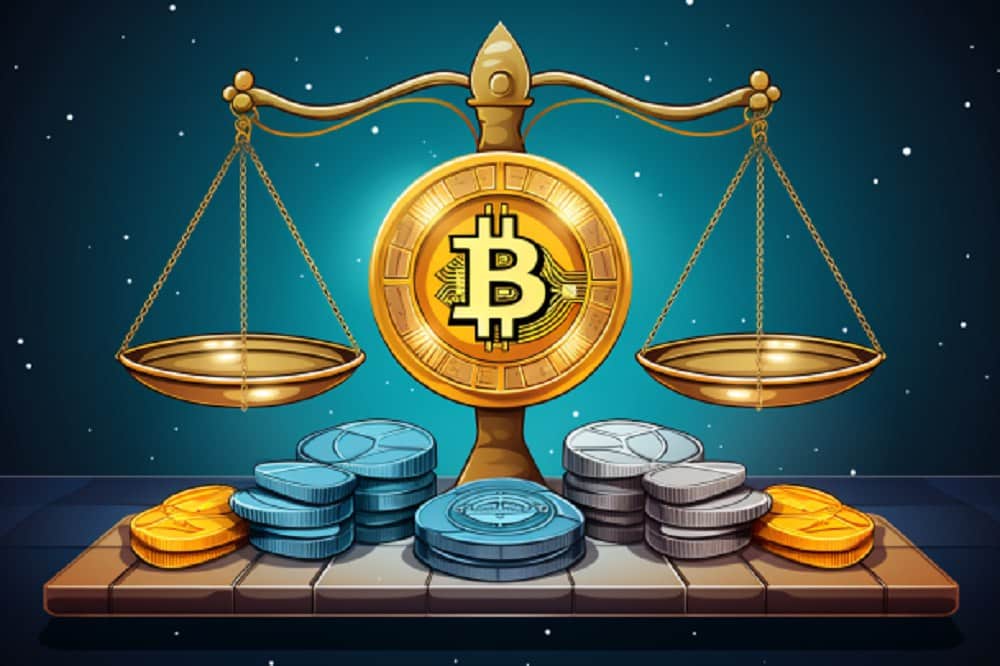PayPal Commence with the PYUSD Integration, Picks Solana Blockchain

PayPal has announced that it is going to connect its stablecoin, PYUSD, with the Solana blockchain. The company says PayPal chose the Solana blockchain mainly because of its technical benefits. With its cheap transaction fees and great coverage, Solana has become a top blockchain platform that can handle large-scale applications.
Solana provides a strong answer for PayPal’s requirements, processing more than 65,000 transactions per second with an average transaction charge of less than one cent. PayPal’s blockchain Senior Vice President, Jose Fernandez da Ponte, while talking to journalists today, pointed out the need to sustain high transaction volume in the retail sector.
He later confirmed that his company is working with the SEC to address some of the concerns it raised earlier. Some of these concerns include technical obstacles, such as slow transactions and concurrent outages.
This collaboration not only demonstrates Solana’s potential but also the growing trust that major financial institutions have in blockchain technology. It is anticipated that the ruling will reverberate throughout the financial services sector, inspiring further players to investigate blockchain-based solutions.
PayPal CEO Details the Advantages of Choosing the Solana Blockchain
PayPal CEO Dan Schulman outlined the advantages of this integration in a statement. According to Dan, “By integrating PYUSD with the Solana blockchain, we can provide our consumers with transactions that are both quicker and more affordable.”
It is anticipated that the connection with Solana will increase the usefulness of PYUSD by facilitating faster and less expensive transactions. PYUSD is becoming more viable choice for regular transactions and international payments as a result of the integration with Solana, which is expected to improve user experience by cutting transaction times and expenses.
Solana has set itself apart from Ethereum with its special consensus method, Proof of History (PoH), which increases scalability without sacrificing security. Co-founder Anatoly Yakovenko expressed excitement about the collaboration with PayPal. According to Yakovenko statement, “We are thrilled to work with PayPal and encourage PYUSD’s blockchain integration.”
PayPal Plans to Widen Its Stablecoin Acceptance Using Solana Blockchain
PayPal says it is working to open the door for blockchain technology to be more widely accepted and used in traditional financial services. The success of this arrangement will make the PYUSD transactions much faster, which will cut down on the waiting times that are frequently connected to blockchain transactions.
It is anticipated that the integration will encourage innovation within PayPal’s network. PayPal may create and implement new financial services and products by utilizing Solana’s smart contract capabilities, giving customers more options for handling their digital assets.
In the long run, PayPal’s blockchain plan may consist of several steps, the first of which may be this integration. According to industry observers, PayPal might look into further blockchain integrations and partnerships to maintain its lead in the highly competitive field of digital payments. The outcome of the PYUSD-Solana integration will probably impact PayPal’s upcoming blockchain initiatives.
PayPal Aligns with SEC To Ensure Adherence to Regulatory Guidelines
Bloomberg reports that PayPal is planning to expand its market base to increase its use for retail payments in Southeast Asia, Africa, and Latin American markets. This is happening at a time when most of the activities on PYUSD are happening within Decentralized Finance (DeFi) and major cryptocurrency exchanges.
Meanwhile, PayPal introduced Xoom, its cross-border payment service, in April to facilitate international transfers via dollars converted using the PYUSD. PayPal has recently experienced some regulatory scrutiny by government authorities, which led them to halt their stablecoin project in early February 2023.
A report says that the United States Security and Exchange Commission (SEC), through its enforcement department, sent a subpoena to PayPal in November 2023 regarding the PYUSD stablecoin project. PayPal, through its management, showed confidence in Solana’s stability in resolving these concerns.
PayPal is optimistic that its users will seamlessly switch to Ethereum if they’re faced with any technical disruptions. The company, through its PYUSD, is looking to explore more opportunities in the blockchain industry. This is in line with the company’s original plan to ensure that its stablecoin works across many blockchain networks.
DISCLAIMER: It's crucial we tell you that the content on this page is not meant to serve as, nor should it be construed as, advice in legal, tax, investment, financial, or any other professional context. You should only invest an amount that you are prepared to lose, and it's advisable to consult with an independent financial expert if you're uncertain. To obtain more information, we recommend examining the terms of service and exploring the assistance and support resources provided by the issuing or advertising entity. Our platform is dedicated to delivering accurate and unbiased reporting, but it's important to note that market circumstances can change rapidly. Also, be informed that some, though not all, articles on our site may be sponsored or paid content.













